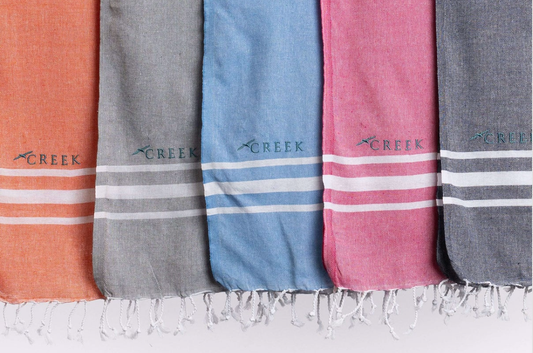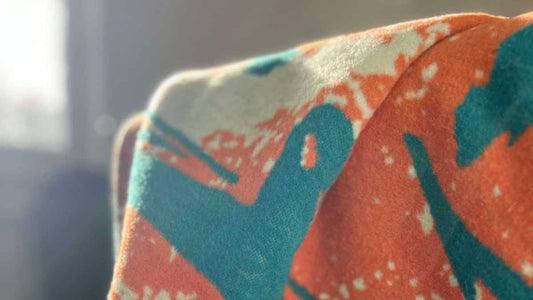Is Recycled Cotton Good Quality?
Quick summary: Recycled cotton can be a high-quality, eco-friendly alternative to virgin or conventional cotton. The final quality depends on the source material, recycling process, and intended use. In this guide, we break down the benefits and trade-offs of using recycled cotton for garments, homeware, and textiles.
What is recycled cotton?
Recycled cotton is made by reclaiming cotton fibre from pre-consumer (factory offcuts and scrap) or post-consumer (used garments and textiles) textile waste. Rather than going to landfill, the material is sorted, shredded, and spun into new yarn that can be woven into cotton fabric again.
Is recycled cotton good quality?
The quality of recycled cotton depends on the original cotton source, how many times it’s been reused, and the recycling process itself. Since mechanical recycling shortens cotton fibres, most recycled cotton is blended with new cotton or synthetic yarn to strengthen it.
Despite that, recycled cotton can still be soft, breathable, and highly usable—especially for garments, accessories, and home textiles that don’t require high tensile strength. You’ll find it used in everything from recycled cotton blankets to durable tote bags and relaxed-fit apparel.
Recycled vs virgin vs organic cotton
|
Type of cotton |
Source |
Environmental impact |
Strength & quality |
|
Recycled cotton |
Pre/post-consumer textile waste |
Lowest footprint, reduces landfill |
Varies; often blended for strength |
|
Organic cotton |
New cotton grown without harmful chemicals |
Lower impact than conventional cotton |
High quality, soft and skin-friendly |
|
Virgin cotton |
New cotton from conventional farming |
High water use, pesticide-heavy |
Strong, but higher environmental cost |
Environmental benefits of recycling cotton
- Reduces landfill by diverting textile waste
- Lowers greenhouse gas emissions from cotton production
- Decreases use of water, fertiliser, and pesticides
- Extends the life of existing cotton fibres
According to the Decathlon Sustainability Report, recycling one tonne of cotton garments can save over 20,000 litres of water compared to producing the same from virgin cotton.
Limitations and considerations
Because the recycling process weakens fibres, recycled cotton isn’t ideal for high-durability products like heavy-duty jeans or workwear. It may also lack the consistency of virgin cotton in colour and texture.
Some manufacturers choose to avoid recycled cotton for these reasons, however, many brands successfully blend it with organic or virgin fibres to find a balance between sustainability and performance.
So, is it worth choosing?
If you care about lowering your environmental footprint and extending the life of existing resources, recycled cotton is an excellent option—especially for soft goods that don’t demand high structural strength.
From recycled cotton blankets to simple wearables and bags, it’s a tangible way to reduce waste while supporting more responsible textile production.
Trusted sources for further reading
If you're looking to try it for yourself, our coastal recycled cotton blankets are a soft, simple place to start—made with care and designed to last.




